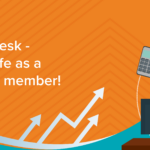Here’s how you can navigate situations like this.
We live in a time and age where there might be women who aren’t familiar with the term mansplaining, but more than a bunch of them have experienced this in one way or the other. Men explaining things to women in a condescending way, taking ideas or statements that a woman just made and repeating like it’s their own is frustrating, but also increasingly common.
Here’s what a few women from Swiggstree (Swiggy’s women-led community) have to say about their experiences and what worked for them.
Junofy Rozarina, Behavioral Scientist.
I started working as an independent behavioural science consultant in Europe when I was in my early twenties. I had to sit in multiple board meetings where the attendees were predominantly much older, more experienced, white men. I was this visibly-young brown girl who was there to tell these people what they were doing wrong. Early on in my career, people would interrupt me, dismiss my points (even if I was factually right). Someone once even mansplained my own PhD topic to me! I had to eventually learn to fix this.
My advice and what worked for me: When someone interrupted me, I’d continue talking at the same volume, same speed. They would usually stop, look confused and realise what they did. I sometimes even had to say, “Can I please finish my point? It’s important.” or “I still need a minute to finish my point”. I probably came across as rude but it had to be done.
More importantly, I practised assertiveness and learned to establish my ground. I enter rooms with confidence, turn off my natural introvertedness and shake hands firmly. I also actively learn to speak loud, slow and clear.
Anuradha Jaggi, Assistant Vice President – HR Shared Services.
Maybe it’s by virtue of my roles and career in Human Resources where you usually have a reasonably good gender diversity and most people or leaders are trained on behaviours so they can lead the org culture in a certain direction.
My go-to approach is that I show up each time for myself and for my colleagues. In fact, if I see someone interrupting I actually call that out and ask the person to wait. I do this more deliberately when I see a woman being interrupted and a junior one at that. I’m loud enough to say what I must.
My advice and what worked for me: Keeping your points and statements precise and articulating them well helps. Calling out the biases as you see them is the best way to help the person who is biassed. If there is something that hurts me I have built the courage to talk to the person one-on-one, that way I still have an opportunity to build a rapport. It works sometimes and other times people change their behaviour. Takes time and tact, so getting started early is a good idea.
Vidhya S., Director- Chief of Staff.
I experienced a lot of mansplaining and men repeating my ideas as their own, during my younger days. Honestly, I don’t deal with it well. I am not naturally assertive, and so I just find it exhausting to have to change my ways (like raise my voice or talk over someone) to prove myself in such situations. Luckily, I do have managers and team members now who value me and my work. They care to listen to me when I make a point and give credit where it’s due.
My advice and what worked for me: I know that in order to grow professionally women will have to speak up more, command the room and get out of their comfort zone. It’s not easy and requires a conscious effort, but I continue to be a WIP in that regard.
Soumya Shetty, Manager – Internal Communication
Over the years, I’ve been privy to various instances of casual mansplaining. At every stage, my reactions have changed from confusion, anger, exhaustion to indifference. Early on in my career, I mistook it as my inability to articulate my ideas well and was severely self-critical. However, as I witnessed it happen to others around me, I learnt to recognise it for what it was and started to play an active role in calling it out when I saw it.
My advice and what worked for me: When someone retold my ideas, observations, and perspectives as their own, I would respond by saying “I’m glad you understood my point of view. This is exactly what I wanted to drive when I said…”. When I saw it happen to others around me, I would interject and respond, “I’m glad you echo <name of person’s> points of view. This really helps build their case further. Do you agree, <name of person>?”. These responses more often than not have let me take control of the conversation and have helped me shift it towards colleagues who otherwise were not able to.
It is hard navigating the world as a woman, with or without these issues. So the next time you deal with something similar, you’ll know what to do.
Author Bio
Priyanka Praveen leads content for Swiggy's Employer and Talent Branding team. She comes with 11 years of writing experience having worked for Indian and International news organisations. She loves story-telling, is an avid embroidery artist and a wannabe baker.
















































































